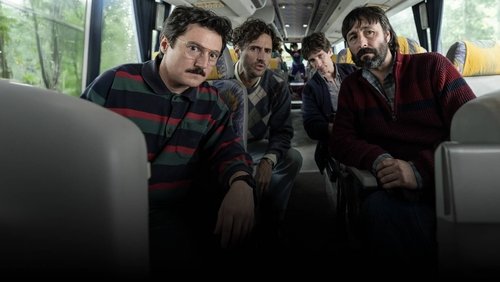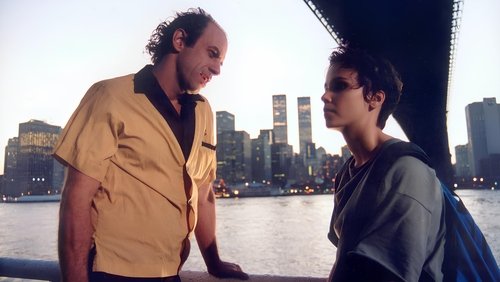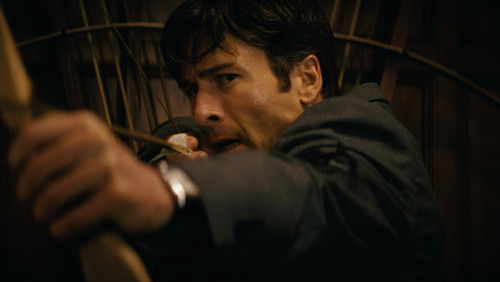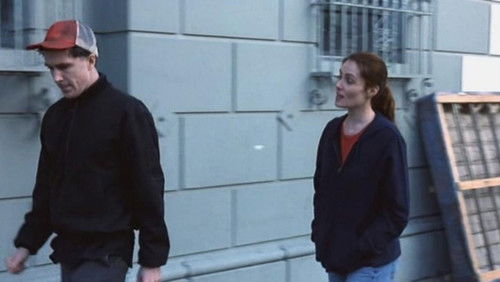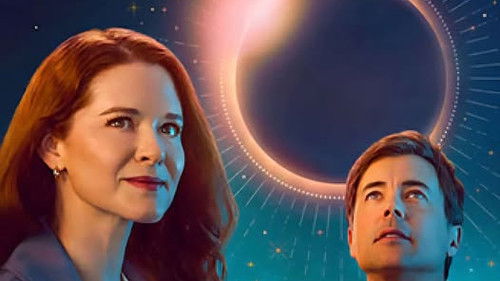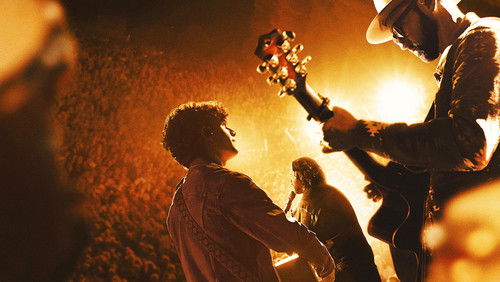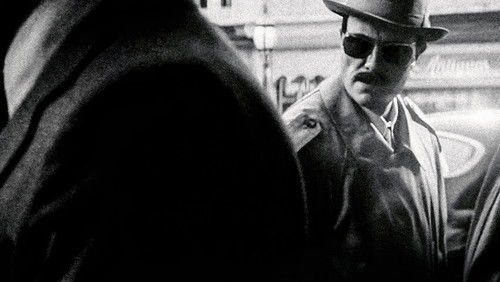The Purple Heart (1944)
30KThe Purple Heart: Directed by Lewis Milestone. With Dana Andrews, Richard Conte, Farley Granger, Kevin O’Shea. This is the story of the crew of a downed bomber, captured after a run over Tokyo, early in the war. Relates the hardships the men endure while in captivity, and their final humiliation: being tried and convicted as war criminals.
“Itu0026#39;s hard to see this as much more than an effective piece of flag-waving propaganda. A handfull of American fliers are brought to trial in Shanghai after being captured and having participated in Doolittleu0026#39;s raid on Japan. The outcome of the trial is predetermined. The whole thing is revealed as a farce from the beginning, like the trial of the sherrif and his deputies in Mississippi back in the 1960s. Potentially objective journalists are excluded from the courtroom. The judge is clearly bent on hanging the defendants. Their court-appointed counsel does nothing. One by one the defendants are tortured, yet they never confess their guilt in bombing hospitals and spraying childrenu0026#39;s playgrounds with lead, which in fact they didnu0026#39;t do anyway in real life. When the surrender of the American and Philippino forces at Corregidor is announced, the Japanese military observers jump up screaming and do a demonic dance featuring flashing swords, all improvised. For about one minute the courtroom resembles a lunatic asylum before the discovery of phenothiazines. u003cbr/u003eu003cbr/u003enTowards the end they are offered a normal prisoner of war status by Richard Loo, the army officer who has been arguing that they flew off a carrier, if only they will admit that they did, in fact, fly off a carrier. That way he wonu0026#39;t be proved wrong. Led by the thin-lipped, grimly determined Captain Dana Andrews they agree to plop their aviatoru0026#39;s wings into a vase in a secret ballot. If even one pair of wings is broken they will accept Loou0026#39;s offer. Is there finally a pair of broken wings in the vase? Well — consider the context.u003cbr/u003eu003cbr/u003eHereu0026#39;s a movie from the mid-war years. The Doolittle raid was real. It had no significance except as a morale booster, but it DID boos morale. All of the airplanes were lost, because the fleet carrying the B-25s was seen by a Japanese trawler (sunk as soon as possible) which was presumed to have radioed its contact back to its homeland. If, in fact, the trawler HAD alerted Japan, there was no evidence of it. When the bombers crossed the coast, one Japanese observer reported seeing u0026quot;curious brown planes.u0026quot; So the target was caught unaware.u003cbr/u003eu003cbr/u003eIt was an act of war. Nevertheless, some of the captured crews were executed, a violation of the Geneva Accords, which the Japanese had never signed anyway. (Read Ted Lawsonu0026#39;s long out-of-print book, u0026quot;Thirty Seconds Over Tokyo,u0026quot; for a good first-hand account.) u003cbr/u003eu003cbr/u003eIt has its moments of humor. Their defense council announces that he is a graduate of Princeton. Sam Levene introduces himself as u0026quot;Greenbaum, City College of New York.u0026quot; This is a kind of joke because at the time, and afterward, CCNY was thought to be a hotbed of radicalism. There are also moments of sentimentality but theyu0026#39;re mawkish and by the numbers.u003cbr/u003eu003cbr/u003enThere is an attempt to reflect the contemporary world situation. The Russians are ambivalent. The Germans are enthusiastic trial attendees. The Argentinians are puzzled and wax wroth. (The Argentine government was later to prove more accomodating.) The Swiss Red Cross does its best but is helpless. The Chinese are divided, some of them duplicitous, although I doubt that any young man could bring himself in China to murder his own father.u003cbr/u003eu003cbr/u003eItu0026#39;s a serious movie. Not, like u0026quot;Gung Ho,u0026quot; a simple exercise in demonstrating our superiority over the enemy. u0026quot;Gung Hou0026quot; is funny. u0026quot;The Purple Heartu0026quot; isnu0026#39;t. It will probably make some viewers uncomfortable because it may prompt them to think of things like rigged trials, manufactured evidence, the assumption of guilt, and judicial corruption. On the other hand, of course, we must also take into account the timbre of the times. Itu0026#39;s all to easy for us, sitting back in our sybaritic recliners and sipping Starbucku0026#39;s, to look back at what tribulations an entire generation was going through in 1943 and judging them on our own terms. Of course, nothing is easier, and more wrong. Letu0026#39;s cut the movie makers a bit of slack. These were contentious times.”

